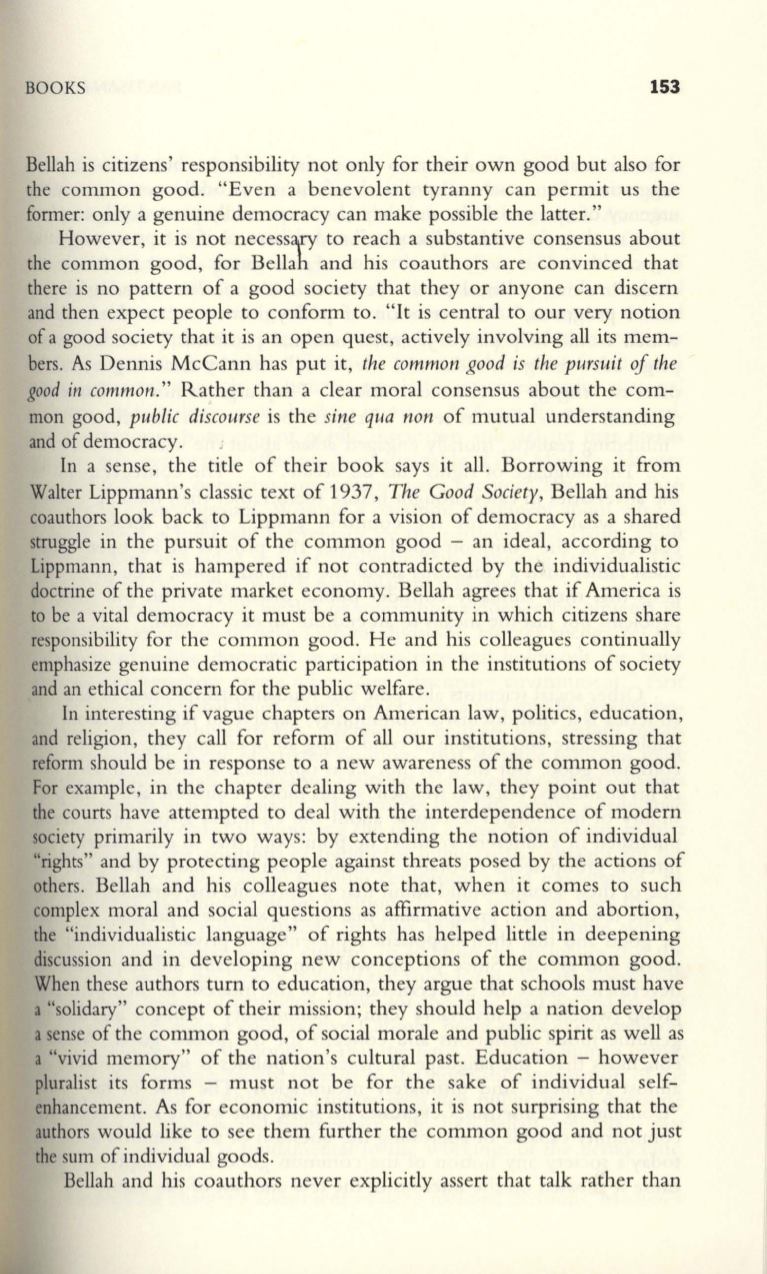
BOOKS
153
Bellah is citizens' responsibility not only for their own good but also for
the common good. "Even a benevolent tyranny can permit us the
former: only a genuine democracy can make possible the latter."
However, it is not necess,ry to reach a substantive consensus about
the common good, for Bellah and his coauthors are convinced that
there is no pattern of a good society that they or anyone can discern
and then expect people to conform to. "It is central to our very notion
of a good society that it is an open quest, actively involving all its mem–
bers. As Dennis McCann has put it,
the common good is the pursuit
if
the
good in common."
Rather than a clear moral consensus about the com–
mon good,
public discourse
is the
sine qua non
of mutual understanding
and of democracy.
In a sense, the title of their book says it all. Borrowing it from
Walter Lippmann's classic text of 1937,
The Good Society,
Bellah and his
coauthors look back to Lippmann for a vision of democracy as a shared
struggle in the pursuit of the common good - an ideal, according to
Lippmann, that is hampered if not contradicted by the individualistic
doctrine of the private market economy. Bellah agrees that if America is
to be a vital democracy it must be a community in which citizens share
responsibility for the common good. He and his colleagues continually
emphasize genuine democratic participation in the institutions of society
and an ethical concern for the public welfare.
In interesting if vague chapters on American law, politics, education,
and religion, they call for reform of all our institutions , stressing that
reform should be in response to a new awareness of the common good.
For example, in the chapter dealing with the law, they point out that
the courts have attempted to deal with the interdependence of modern
society primarily in two ways: by extending the notion of individual
"rights" and by protecting people against threats posed by the actions of
others. Bellah and his colleagues note that, when it comes to such
complex moral and social questions as affirmative action and abortion,
the "individualistic language" of rights has helped little in deepening
discussion and in developing new conceptions of the common good.
When these authors turn to education, they argue that schools must have
a "solidary" concept of their mission; they should help a nation develop
a sense of the common good, of social morale and public spirit as well as
a "vivid memory" of the nation's cultural past. Education - however
pluralist its forms - must not be for the sake of individual self–
enhancement. As for economic institutions, it is not surprising that the
authors would like to see them further the common good and not just
the sum of individual goods.
Bellah and his coauthors never explicitly assert that talk rather than


